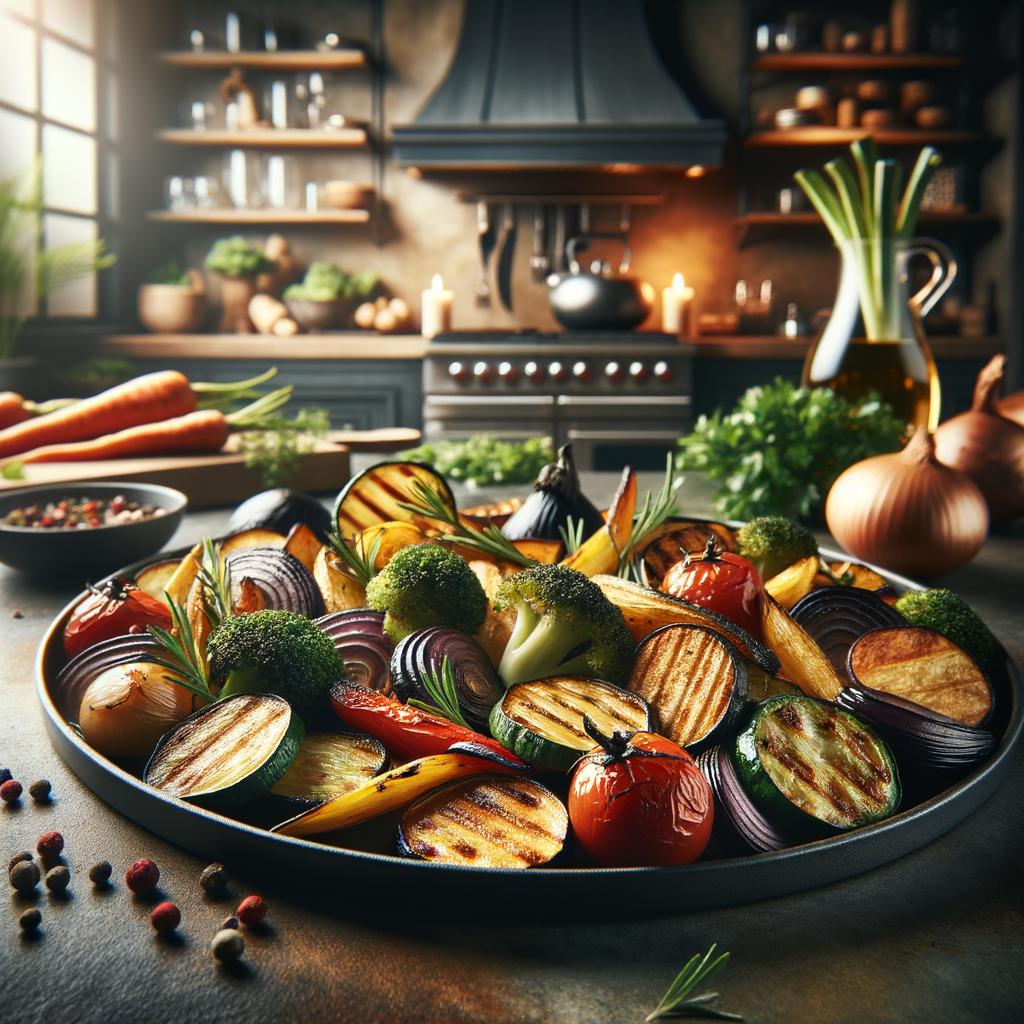Roasted Vegetables

Description
Roasted vegetables, a symphony of colors and flavors, are a feast for both the eyes and the palate. They come in a myriad of shapes and sizes, from the humble potato to the vibrant beetroot, each adding its unique character to this harmonious ensemble. The roasting process brings out the natural sweetness of the vegetables, transforming their raw, earthy flavors into a rich, caramelized delight. Their texture, once firm and crisp, becomes tender and succulent, with a slight crunch on the outside that is a testament to their time spent in the warm embrace of the oven. Each vegetable, while delicious on its own, contributes to a complex flavor profile that is greater than the sum of its parts, setting roasted vegetables apart from their raw or steamed counterparts.
Primary Uses
Roasted vegetables have a ubiquitous presence in kitchens around the world, their universal appeal transcending geographical and cultural boundaries. They serve as a hearty side dish to a main course, a robust ingredient in salads, or even as a standalone meal when paired with grains or pasta. In Mediterranean cuisine, they play a starring role in dishes like ratatouille, while in the Middle East, they are often tossed with spices and served with couscous. Beyond their culinary uses, roasted vegetables also have cultural significance. For instance, in many cultures, roasting vegetables is a time-honored tradition associated with festive occasions and family gatherings.
History
The practice of roasting vegetables dates back to ancient times, with evidence of this cooking method found in many early civilizations. The Romans, for instance, were known to enjoy roasted leeks and turnips. Over time, as trade routes expanded and new vegetables were introduced, the repertoire of roasted vegetables grew. Intriguing stories abound, such as the tale of the potato, once feared and avoided in Europe, that eventually became a beloved staple. The art of roasting vegetables has evolved over time, with modern chefs experimenting with different vegetables, seasonings, and roasting techniques, yet the essence of this simple, rustic cooking method remains the same.
Nutritional Information
Roasted vegetables are a powerhouse of nutrition, packed with a wealth of vitamins, minerals, and dietary fiber. They are particularly rich in beta-carotene, a powerful antioxidant that is converted into vitamin A in the body, and vitamin C, which boosts the immune system. The roasting process, while enhancing their flavor, also makes their nutrients more bioavailable. Compared to raw vegetables, roasted vegetables have a lower water content, concentrating their nutrient density. However, it's worth noting that the high temperatures involved in roasting can degrade some sensitive nutrients, such as vitamin C. Despite this, roasted vegetables still offer a substantial nutritional punch, making them a delicious and healthy addition to any meal.

